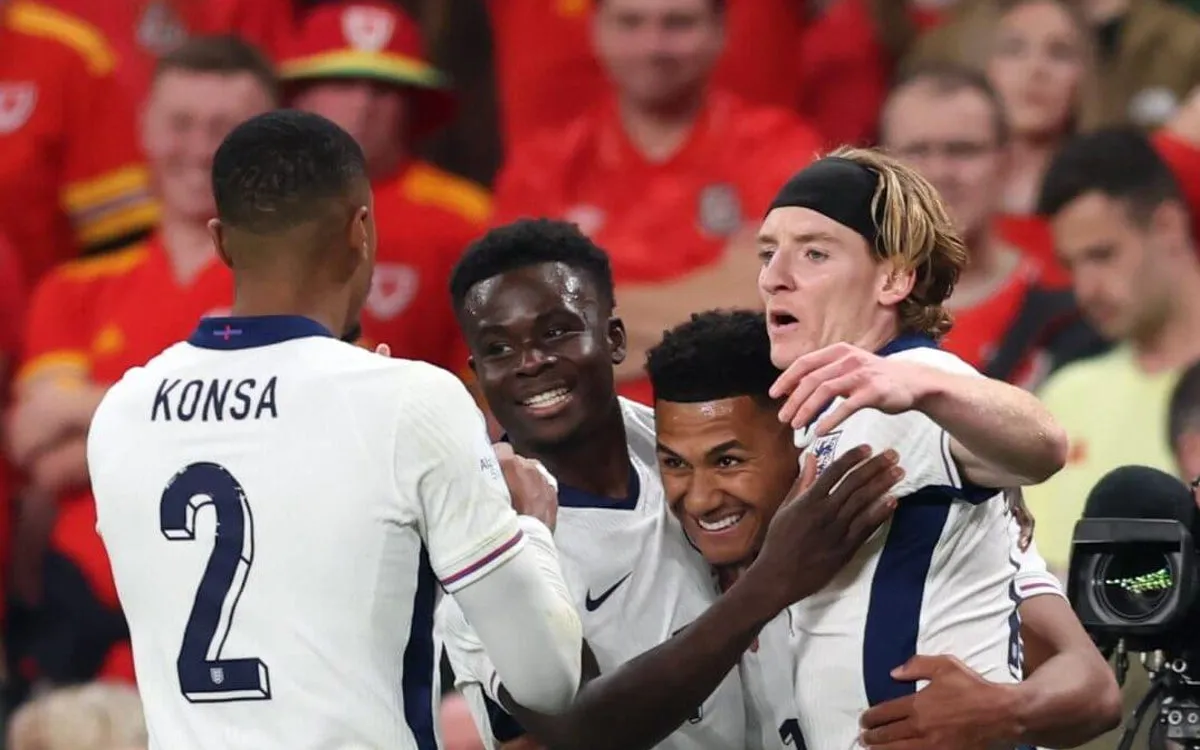
Friendlies often present a complicated scenario for teams and fans alike. A lackluster performance can lead to skepticism about their significance, while a convincing victory might foster unrealistic optimism. However, England's recent 3-0 win over Wales—currently ranked 30th in the FIFA rankings—should be viewed with cautious optimism. There is a growing sense of cohesion and familiarity in Thomas Tuchel's England that is encouraging, suggesting a clear direction for the team.
One of Gareth Southgate's remarkable strengths was his ability to cultivate a “club environment” as the national team manager. This consistency in player selection and messaging has provided England with a better chance of achieving long-term success. A year into his tenure, Tuchel seems to be following a similar path, bringing a tactical depth that may better equip the team for the challenges of next summer's World Cup.
“I just watched a documentary on the New England Patriots and saw a quote there — ‘We don’t collect the most talented players, we build a team’,” Tuchel remarked ahead of the match. This philosophy reflects the Patriots' success, having won six Super Bowls in the 21st century. With Tuchel's clear objective of clinching the World Cup next summer, his focus on building a strong team is understandable.
Despite concerns about the selection of Morgan Rogers and Ollie Watkins—especially given Aston Villa's rocky start to the season—both players made an immediate impact. Before the 15-minute mark, they had both scored, thanks to two cleverly designed set-piece routines. Rogers, in particular, broke his goal drought with a commanding performance characterized by intelligent movement and relentless runs behind the defense.
England's full-backs, Djed Spence and Ezri Konsa, also played crucial roles. Their underlapping runs provided wingers Anthony Gordon and Bukayo Saka with the space necessary to exploit Wales’ defensive structure. Konsa’s unselfish run in the 20th minute allowed Saka to curl a stunning shot past goalkeeper Karl Darlow, showcasing England's attacking fluidity.
These examples highlight the growing harmony in England's attacking play. Notably, key players like Jude Bellingham, Phil Foden, Harry Kane, Jack Grealish, and Trent Alexander-Arnold were absent, yet the team exhibited a level of fluidity from the game's outset. “Full credit to the team because they bought into the ideas in the last one and a half days,” Tuchel commented post-match, acknowledging their adaptability against a high-pressing opponent for the first time.
England's midfield duo of Declan Rice and Elliot Anderson displayed impressive synergy, seamlessly alternating roles to support the team's build-up play. Their understanding not only enhanced their defensive capabilities but also demonstrated a commitment to regaining possession aggressively, which is a hallmark of a well-coached club side.
Tuchel emphasized that the players' collective effort was vital for their success: “We made four changes today, and they were excellent. I didn’t feel any interruption in our flow.” The intensity and demand for teamwork were evident, and the team's commitment to Tuchel's tactical philosophy was commendable. “I am very delighted with the last two matches. We are on the right way, and it feels like we showed very good behavior like a club team,” he stated, reiterating the importance of unity in achieving their goals.
Although England reached the final of the Euros last summer, performances leading up to their 2-1 loss to Spain were often criticized. The presence of star players does not guarantee success, as former England captain Steven Gerrard pointed out. He described the “golden generation” as “egotistical losers” for failing to win significant tournaments, highlighting the need for a cohesive team culture.
Gerrard noted, “I think it was down to the culture within England that we were all never connected.” It is evident that Tuchel is determined to avoid repeating past mistakes. While some star names may miss out, the emphasis remains on teamwork and synergy. Thursday's performance against Wales served as a potent reminder that a team's success hinges on collaboration rather than merely showcasing individual talent.